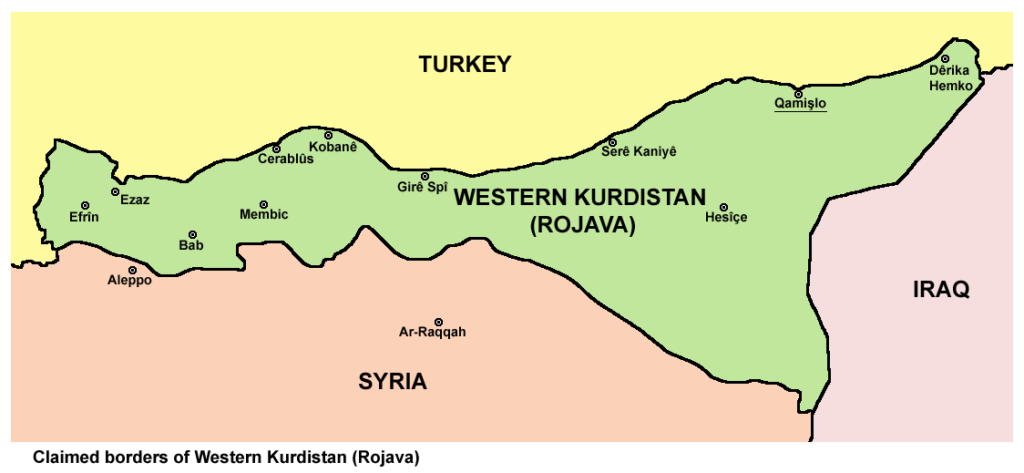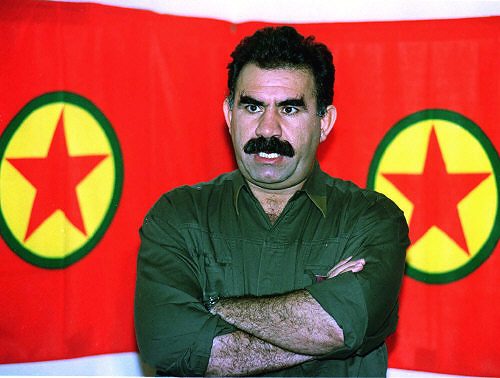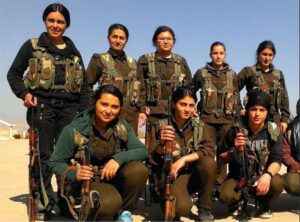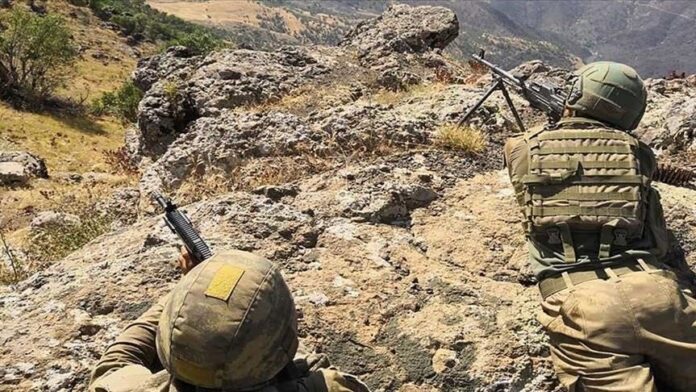As of 17 June 2022, it will have been two months since the state of Türkiye launched the massive military Operation Claw-Lock, against the Kurdish people in Syria and Iraq. Special forces have gone to the mountains of Kurdistan, and bombing has continued day and night with the might of NATO behind it.
Türkiye has been bombing the region as part of its campaign to demolish the Kurdish resistance, which it claims has been engaging in terrorist activities in Türkiye. Operation Claw-Lock is the latest in a series of maneuvers by Türkiye that began in 2019, and have led to hundreds of deaths. The number is under dispute, but likely ranges in the hundreds. These maneuvers violate the sovereignty of Iraq and Syria. They are an attack on the emergent political formations of the people in Rojava, Syria.
Türkiye has sent airstrikes, automated drones and artillery attacks in Kurdish majority areas of Iraq and Syria to isolate them from the Kurdish people in Türkiye. Drones have targeted activists within the free Kurdish movement, particularly focused in the Rojava region of Syria.
Rojava has gained international recognition for its unique and inspirational forms of grassroots democracy and its effective resistance to authoritarian, patriarchal and fundamentalist forces within Syria. Türkiye has been using the cover of the Russian-Ukraine war to escalate its attacks on the Kurdish people.

The origins of the Kurdish movement
During World War I, the British and French Empires joined forces with the budding Arab Nationalist movement to defeat the Ottoman Empire. After the dissolution of the Empire, the French and British took over most of the Middle East. They betrayed their allies in the Arab nationalist movement by splitting the Middle East among themselves, and when the pressure came to grant these areas independence, they arbitrarily drew up borders and made up most of the countries in the Middle East today. Some countries were divided to support Western business interests.
The Kurdish people were mostly tribes located in the regions connecting modern-day Türkiye, Syria, Iraq and Iran. They were minorities in many countries and had no claim to a country of their own.
In the 1980s, Partiya Karkeren Kurdistan (Kurdistan Worker’s Party) began a guerilla campaign for a free Kurdistan movement against Türkiye. The Party mostly organized students first, under the leadership of Abdullah Öcalan (pronounced O-Ja-Laan). The PKK was deemed a terrorist organization and Öcalan was arrested by the Turkish government in 1999.
To Peace and Anarchy
In jail, Öcalan began reading about movements in other parts of the world. He was very impressed by anarchist, feminist, environmentalist, and anti-war movements particularly. He changed his positions. Rather than fighting for an independent Kurdish nation, he advocated that Kurds strive for autonomy and against national borders.
To be truly free, Kurds would have to fight for freedom at every level. They would need to be free within their communities, which meant fighting patriarchy. They would have to fight capitalist forces. They would have to work with other local communities. They would have to resist violence by the state. He felt resistance would be more effective if the local communities were in control of the movement and worked in solidarity with each other in creating autonomy in a region. Fighting to create a new Kurdish state, he felt would recreate the other problems. It would be dependent on a select group of revolutionaries. It would create discord with non-Kurdish communities, and without the active support of liberated women, it would be fragile.

He turned to anarchist thinkers to develop a new theory of organizing. Anarchism does not refer to disorder, but a struggle against all forms of domination. Anarchism, from the parts, An (meaning without) and Archy (ruler) stands against multiple forms of domination like Patriarchy, Hierarchy, Monarchy and Oligarchy. He modified the ideas for the Kurdish context into a model he called, Democratic Confederalism.
Within Democratic Confederalism, is the theory of Jineology, or Science of Women. In order for a society to be free, the traditional bonds that oppress women must be broken. The theory of Democratic Confederalism advocates women-led structures, local governing systems and support for worker-led cooperatives. State-controlled institutions are allowed to have little power, and everyone in society should be given police training. Police training also includes feminist components and is intended to empower women. Conflicts are managed by local councils. There also must exist women-only councils alongside the mixed-gender councils that can override the mixed-gender councils on issues related to women’s oppression, such as domestic violence. Rather than having women’s wings, Democratic Confederalism advocates that Women’s organizations should be empowered enough to handle certain issues even when facing opposition from the men in society. Women make up over 40% of the self-defence fighting forces in Rojava. During the Syrian Civil War, these fighting forces were important in stopping the spread of ISIL.

What is Operation Claw Lock?
During the Syrian Civil War, Türkiye began to occupy parts of Northern Syria. Owing to common interests, the PKK and the Turkish government held peace talks, given the chaos of the war. The PKK agreed to restrict their activities to the mountains, while Türkiye agreed to stop attacking the PKK.
Türkiye began to expand its military bases in Iraq. Türkiye did this to keep the Kurdish movement from gaining strength in Iraq and keep the movement isolated from Kurds in Türkiye. Establishing military bases in Iraq has been called an act of aggression, both regionally and internationally. The conflict between the PKK and Türkiye reignited in 2015.
Türkiye also held a crackdown on Kurdish parties in Türkiye. They were accused of supporting terrorism and thousands of public employees, including democratically elected leaders in Kurdish majority areas, have been detained by the police.
From 2015 onwards, hostilities resumed. Türkiye accused the PKK of expanding its operations, while the PKK has accused Türkiye of attacking its members.
In 2019, Türkiye began a series of “Claw” Operations, where drone and aerial attacks on Kurdish areas in Iraq and Syria began. The Claw operations have been part of Türkiye’s anti-terrorism campaigns, and have been used to suppress Kurdish and other dissident voices both in Türkiye in neighbouring countries.
Türkiye’s attack on the Kurdish regions in Iraq and Syria is an illegal assault on people on foreign soil and warrants heavy denouncement. The people across the world are denouncing these attacks.
Author is a mathematician and political observer based in Bangalore.



